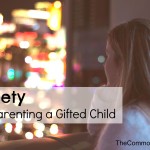A recent article in The Atlantic, The Activity Gap, struck a nerve with me and got me thinking. The article is about how kids living in poverty are at a disadvantage from not being able to access the enrichment opportunities. I believe and agree with this.
What the article doesn’t mention but what I also believe, is that gifted children living in poverty are doubly disadvantaged and this is also an issue for consideration. 
One of the only ways to break the cycle of poverty is through education. When you’re poor a good education is a tough thing to come by let alone the enrichment programs that give you a competitive advantage. I’m sure there are lots of studies to document this but I’m not referencing them. I know this is true because I’ve seen it first hand as a volunteer in the elementary school on the ‘wrong’ side of town.
Nope, it wasn’t helping gifted students. It was helping 1st graders learn to read. Most, not all, of our gifted kids are reading chapter books by the time they get to 1st grade. The kids I was working with were struggling with sight words.
If you want to see what poverty-stricken students go through, spend some time helping teachers in an inner city school. I promise you they’ll welcome any help you can offer. I promise you an experience you won’t forget.
When schools struggle to provide just the basics tools of instruction, like current textbooks – don’t even think about tablets and laptops, the idea of after-school enrichment programs is nothing but a fairy tale. Yes, maybe they offer some sports but probably no much else for those students not athletically inclined.
Forget about it if you’re looking for chess club or a debate team.
Giftedness does not, contrary to the belief of some, occur only in affluent families.
So what happens to the gifted children in these schools? Where they don’t have access to an academic environment that meets their intellectual needs nor do they have potentially life-changing enrichment opportunities?
Their lives don’t get changed.
Sometimes it doesn’t take much to change the trajectory of a life. It could be a teacher who actually sees a student, a class that sparks the imagination and ignites a passion, or maybe it’s a field trip to Harvard.
The recent story of Mont Hall Bridges Academy (grab the tissues) is an example of an educator fighting to give her students life-changing experiences.
I don’t know how many gifted students attend the school but I’m willing to bet they’re there. Probably not identified and probably feeling a little hopeless.
Imagine you’re 12 years old, you know you’re ‘smart’ but you don’t feel like you fit at school. Then you get to visit Harvard and all of a sudden you realize there’s a path – your future isn’t fixed. There are possibilities. It gives me chills thinking about it.
We’ve recently moved to a rural county and the enrichment programs that we’ve come to rely on to supplement school (because my daughter needs *more*) are nowhere to be found.
I take that back, they are to be found about an hour away. That might as well mean the moon on some days.
Thankfully, we have options. No field trip to Harvard but we’ve got options.
One of the reasons we have options is because we have high-speed internet and computers at home. Sounds like a small thing to many of us but I’m realizing in some communities that’s still a luxury. Because of this we can take advantage of things like Khan Academy. Heck, even being able to Google anything and everything whenever we want.
We have flexible schedules so we can spend hours in the car driving o weekend math classes, academic competitions, and museums.
We can take advantage of free or low-cost programs like the talent searches and Davidson Young Scholars because we know about them.
We’re still benefitting from our previous school district that was gifted friendly. We’re finding our tribe online.
We feel lucky. We are lucky.
But the gifted students who aren’t able to avail themselves of the opportunities that are out there are already behind. They simply don’t know the possibilities and sadly those responsible for their care and education probably don’t either.
I feel for all children living in poverty but the gifted kids in that situation – I feel just a teeny bit more for them.









Your post is very timely. I just watched Good Will Hunting for the first time since it’s release. I am a therapist raising a gifted child with ADHD and working in a school on the “wrong” side of town. Your post fuels my passion to help the hidden gifted not become consumed by poverty or mental illness… Thank you!
I’m so glad! Thanks for stopping by 🙂
When I was in high school, I volunteered for a fourth grade charter school classroom in an inner city and it was heart-breaking. After grading a lot of math assignments and realizing that the teacher didn’t even see that a (frequently punished for calling out the right answer) black little girl and a (very quiet) Hispanic little girl were doing better than the white boy and Asian boy she’d identified as advanced, I begged to be able to take all four of them out for pull-out math. They were brilliant. I still remember their reaction when I taught them about base 8.
The heart-breaking part was that the little black girl was living in a car with her mom and her two older sisters and before the end of the year she took her daughter out of that fourth grade charter and put her in the regular public school with even larger class sizes. Her oldest sister was being recruited for my g/t boarding school, but I never found out what happened after that. On the one hand, her going would have opened up worlds, but on the other hand, from what I’d heard from the teacher, the oldest sister was holding the family together.
It’s all so unfair.
My daughter goes to a Title 1 school, where the majority of students qualify for free lunch. She was tested for gifted in 2nd grade, and has to go to a different school to receive gifted services one day a week. At our IEP meeting to get her started, we learned that she was the only student in the school receiving gifted services. One out of over 400. There’s no way there weren’t at least a few more gifted children in the school . Later I learned that some of the parents refused to let their kids be tested, and I’ll never understand that. She’s in 4th grade now, and there are two more kids going to gifted once a week. I wish more of the kids in her school had at least the opportunity to be tested.